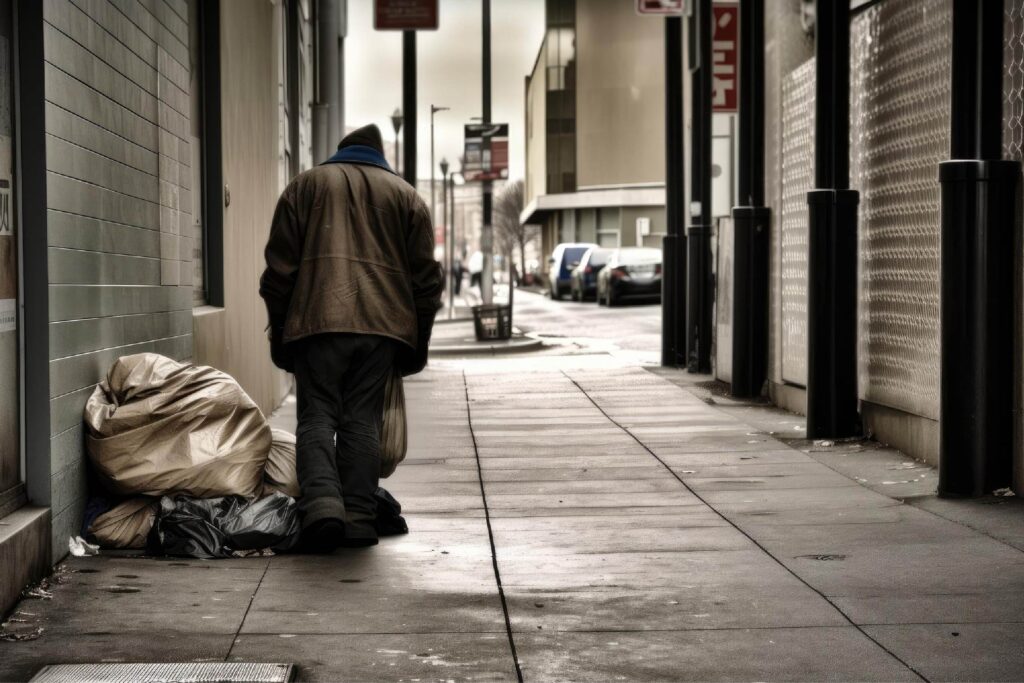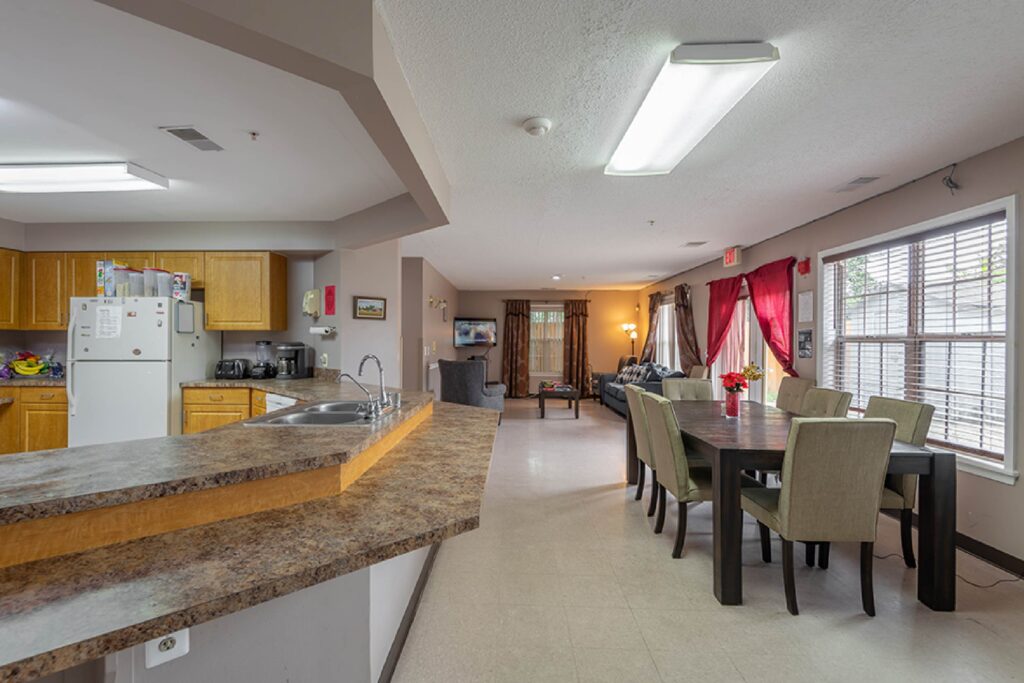In celebration of National Homelessness & Hunger Awareness Week, we are excited to announce that we have reached 100 individuals served through our Hope Has A Home™ medical respite program!
In 2019, we launched Hope Has a Home™, in partnership with AmeriHealth Caritas DC, Unity Health Care and Pathways to Housing DC, with the aim of ending chronic homelessness in the District of Columbia. This medical respite program is designed to improve health outcomes for Medicaid members experiencing homelessness, while also reducing the total healthcare spending for the Medicaid population.
Ever wonder what happens when someone experiencing homelessness is discharged from the emergency room after treatment for a drug overdose, mental health incident, injury or serious illness? Many of these unhoused individuals end up back on the street, or in and out of shelters, increasing the likelihood of a relapse.

Through our Hope Has A Home™ program, we partner with managed care organizations, health providers and housing experts to reduce avoidable hospital visits, improve health outcomes and break the cycle of homelessness. When someone without a home from a participating health plan is discharged from the hospital, they are given a warm bed in a welcoming and residential environment, space to heal through onsite medical care and substance use recovery support (if needed), and eventually transition into long-term housing.
“It can be really difficult for people experiencing homelessness to manage their health when they don’t have ways to address other basic needs. We’re proud to be able to offer an integrated model that can address the full range of needs for someone experiencing homelessness.”
– Dr. Sheryl Neverson, Senior Vice President of Clinical Strategy

So, what is medical respite?
Medical respite, also called recuperative care, is a model of care that provides temporary housing and medical care to people who are too sick to recover from an illness or injury on the streets, but not ill enough to be in the hospital. The model has existed since the 1980s. Various approaches to medical respite have proven successful, with the common thread being the provision of short-term care in a safe and supported environment that allows individuals to receive the care they need to effectively recover.
Here’s where it gets interesting.
In the District of Columbia, there are approximately 4,900 men, women and children experiencing homelessness on any given night of the year. Of those individuals, 27% are living with a severe mental illness, 15% experience substance use disorders and 16% have a chronic health condition. However, the District has only 50 designated medical respite beds. Christ House, the very first medical respite program in the District, provides 34 beds, and Hope Has A Home™ provides 16 beds. So, the demand for medical respite far exceeds the supply.
We are honored to have been able to help address the gap in medical respite programming for those most in need in the community. In addition to serving 100 individuals over the past 3.5 years, we are excited to share that of those served:
- 70% are in permanent housing or stable living environments (such as living with relatives).
- 40% did not need to rely on emergency services or hospitalization after entering the program.
Metrics are just one way we illustrate impact. Sharing first-hand stories of transformation from the individuals who benefit from the program is another.
Meet Gregory Mitchell, a Hope Has A Home™ graduate. Gregory had been homeless for many years and suffered from an addiction to heroin. After arriving in our program in 2021, he benefitted from 180 days of intensive substance use recovery treatment, job resource assistance and placement into permanent housing.
Gregory has been sober since 2021 and he successfully moved into a home in Silver Spring, MD. He also has been working as a member of the maintenance team at the District of Columbia Housing Authority, which works to place low-income households into affordable housing. We love how Gregory’s story came full circle. Where once he was a victim of homelessness, he now works to help to ensure more individuals and families have places to call home.
To learn more about Hope Has A Home™, visit www.voachesapeake.org/hhah.
Where do we go from here?
Although we have seen a lot of success through Hope Has A Home™, a critical gap remains in the number of medical respite beds and programs in the District. And there’s an even greater gap in services for women.
More than 32.5% of those experiencing homelessness in the District of Columbia are women. That means that nearly 1,600 women are living on the streets of DC on any given night of the year. Not only are these mothers and daughters without a roof over their heads, many are victims of gender-based violence, and more than half have a mental health challenge, substance use disorder or other serious health condition.
Housing is only the first step to free someone from the grips of homelessness for good. Serious mental and physical illnesses can make staying housed in the long-term very difficult. Women are more likely to experience deteriorating health outcomes during their reproductive years due to a lack preventive care such as prenatal, mammograms and other tests. They also often lack access to important hygiene products, including menstrual products. Finally, women often need greater care and time than men to recover and get connected to services.
Given the complex needs of women, it is critical to have programming that specifically addresses their housing and health related needs.
Recognizing the gap in medical respite programming for women that offers the wrap-around support needed by this population, we are excited to be launching the Hope Has A Home™ for Women program in January 2024. This first-of-its-kind program will have a similar structure to the men’s program, while also addressing issues and barriers that are unique to women.
“We are excited about the opportunity to continue to transform the lives of unhoused men, and soon women, in the District of Columbia with a path to recovery, healing, and hope through our medical respite program.”
– Dr. Sheryl Neverson
To learn about how you can help us open and maintain this much needed safe haven for women, read our case for support.
Author: Nicholle Granger, Executive Director of Development & Marketing
